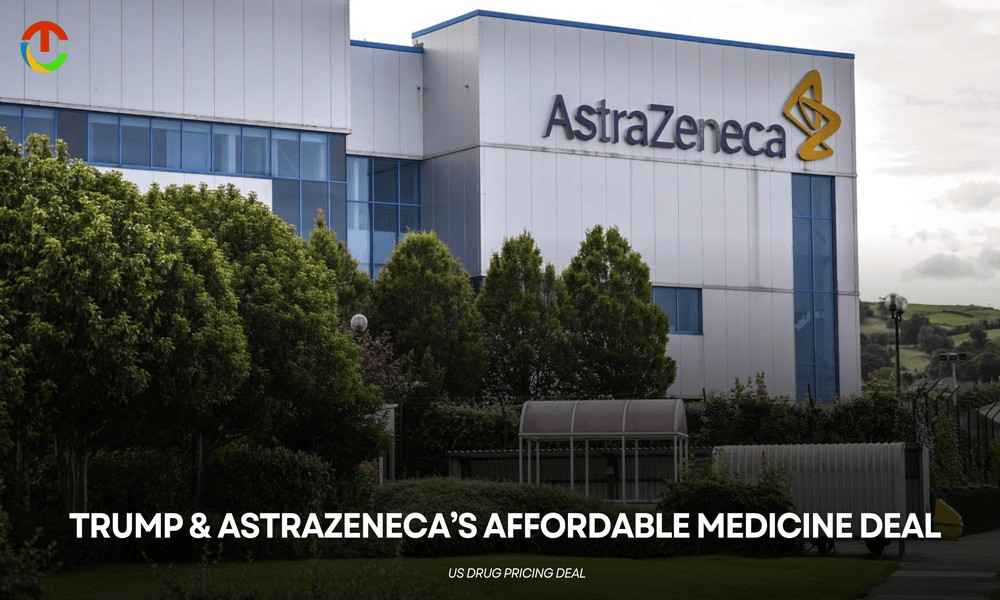In a big event from Washington, D.C., former President Donald Trump and global pharmaceutical firm AstraZeneca announced a landmark deal at the White House to address the high cost of prescription pharmaceuticals in the United States. The agreement, heralded as a step toward more accessible healthcare, aims to reduce drug prices for millions of Americans while increasing transparency in the pharmaceutical industry.
A New Era for Drug Affordability
The US drug pricing deal outlines a framework for AstraZeneca to reduce the cost of several high-demand prescription drugs, particularly those treating chronic illnesses such as diabetes, heart disease, and cancer. The move aligns with Trump’s long-standing campaign promise to address inflated drug prices and ensure that American citizens no longer pay more for medicines than patients in other developed nations.
According to officials present at the White House announcement, the partnership will initially focus on reducing out-of-pocket expenses for patients and negotiating fairer pricing models between pharmaceutical companies and insurance providers. The agreement also emphasizes collaboration with government health agencies to streamline approval processes for new, cost-effective medications.
AstraZeneca’s Commitment to Pricing Transparency
AstraZeneca executives emphasized their dedication to restoring trust and affordability in the U.S. healthcare system. CEO Pascal Soriot stated that this agreement represents “a meaningful shift toward ensuring that innovation in medicine does not come at the expense of affordability.” The company plans to implement a pricing review structure that provides visibility into production, research, and distribution costs.
Industry analysts view this as a strategic move by AstraZeneca to reinforce its standing in the American market amid growing pressure from lawmakers and consumer groups demanding reform in drug pricing. The announcement is expected to influence other pharmaceutical corporations to consider similar agreements with federal authorities.
Potential Economic and Political Impacts
Economists predict that the US drug pricing deal could bring down national healthcare expenditures by billions over the next decade. By curbing excessive pharmaceutical costs, the administration aims to relieve financial burdens on both consumers and government-funded programs such as Medicare and Medicaid.
Politically, the announcement strengthens Trump’s position as an advocate for economic fairness in healthcare—a critical issue ahead of future election cycles. Analysts also suggest that this partnership could reshape the dynamics between pharmaceutical manufacturers and policymakers, paving the way for broader regulatory reforms.
Looking Ahead
The implementation of this deal will be closely monitored in the coming months. A dedicated review board comprising government officials, healthcare experts, and industry representatives will oversee progress and evaluate the measurable impact on patient savings and drug availability.
As the conversation around healthcare costs continues to evolve, this US drug pricing deal between Trump and AstraZeneca may well become a defining moment in America’s ongoing pursuit of affordable, equitable access to life-saving medications.
Read latest exclusive interview of Bob Johnson




